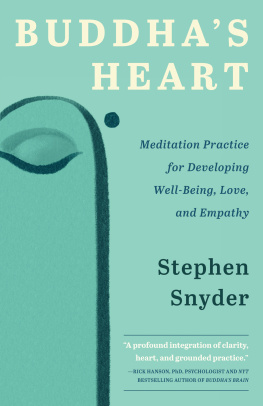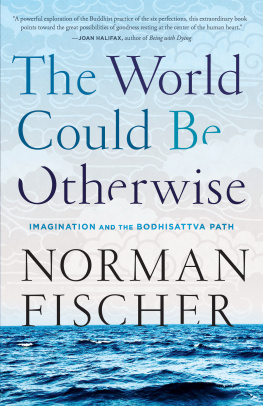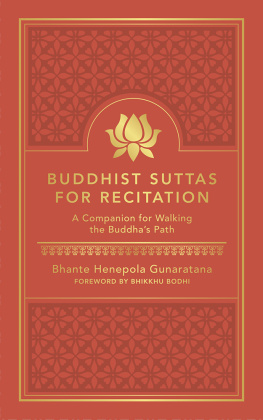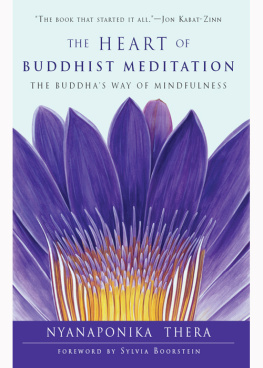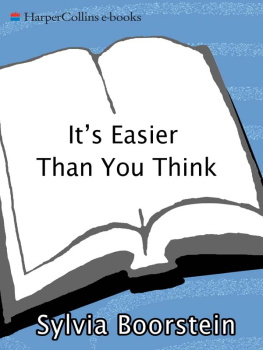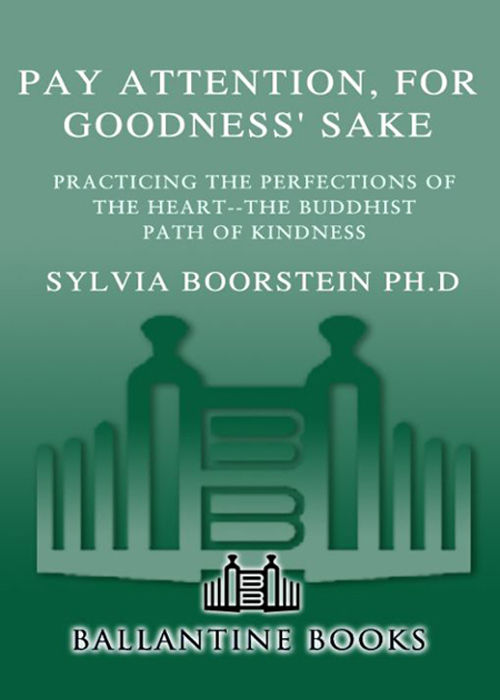
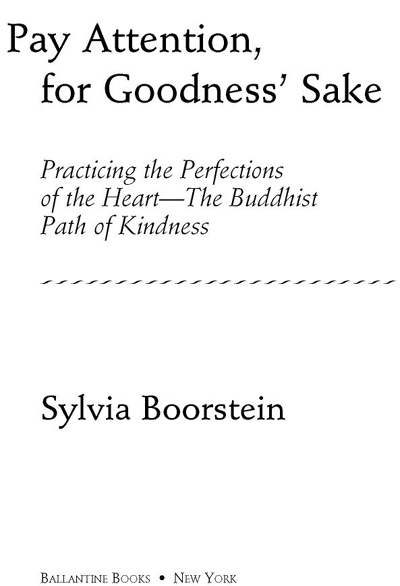
Table of Contents
The venerable Ananda, a senior disciple of the Buddha,
spoke of noble friendship as being half of the holy life.
The Buddha said, No, Ananda. It is not.
It is the whole of the holy life.
This book is for my noble friends.
Some appear in stories, mentioned by name.
Others, because they have supported my heart
and held my hand as this book was being born,
will recognize themselves in what Ive written.
Thank you, all.
PREFACE:
Promising Signs
My first Mindfulness retreat experiencea Friday-afternoon-to-Sunday-evening residential weekend for twenty studentshappened in the spring of 1977 in a private home in a suburb of San Jose, California. Everything about it was difficult. I didnt know anyone. It was hot. We sat for meditation crowded together in what must have been formerly a storage shed, now serving as a meditation room in the backyard. We slept on mattresses too close together on the floors of the bedrooms, men and women sharing rooms, dressing and undressingalbeit speedily and discreetlyall at the same time. I felt shy and confused. I was also in pain because no one had told me there wouldnt be any coffee and I had a huge caffeine-withdrawal headache. I sat on my meditation bench counting first the hours and then the minutes remaining until the time my husband was scheduled to pick me up. I rehearsed the long, indignant speeches I planned to make on the drive home about how poorly he had prepared me for this event and what nonsense it all was.
Two months later, on July 7, I was on a plane en route to Portland, Oregon, enrolled in another, even longer Mindfulness retreat, the second of many, many retreats that continue even now and have becomealthough I couldnt have imagined it thena core element of my spiritual life. When people ask me now, How come, given that your first experience was so difficult, you went back? I respond, in all candor, Im not sure. Its mysterious. Maybe its grace.
I have only two clues. One is a photograph, a 3-by-5-inch black-and-white class-graduation-style photo, of all twenty of us and our teacher grouped together in three rows facing a camera, probably taken on Sunday in the late afternoon. I am sitting in the front row, at the very right end. I am smiling. Looking at this picture now, I think that perhaps Id had more hints of promise than I recall. Perhaps my mind, in its normal self-protective moderemembering discomfort in order to avoid further discomfortbegan retelling itself exaggerated stories of pain in a voice loud enough to drown out the whispers of hope. The other clue is a clear recollection of a decorative plaque on the mantelpiece of the living room, a highly polished redwood burl with a sentence etched into it, the kind people buy in souvenir shops in national parks. Usually those plaques say HOME SWEET HOME or SISTERS ARE FRIENDS FOREVER. I think it was the message on this plaque that brought me back. It read LIFE IS SO DIFFICULT, HOW CAN WE BE ANYTHING BUT KIND?
INTRODUCTION:
The Paramitas
GOODNESS AND KINDNESS
My friend Lew Richmond took ill suddenly and almost died of viral encephalitis. Lew and I are longtime members of a Buddhist teacher-colleague group that he named Rhinoceros for what he saw as our common tendency to stake out independent paths. At a Rhino meeting just a few days after Lews crisis had passed, several of the group members, reassured that he would live, admitted to having begun to compose his eulogy. We mentioned his many talents. Lew is a Zen teacher. And a pianist. And a composer. And an author. And a lecturer. And a business consultant who is the CEO of his own computer design company.
The best thing about Lew, though, Jack said, is that he is a truly good person.
Roger laughed. Do you suppose, he said, that after all our sophisticated Buddhist discussions, and all our meditation practice, and all our teaching, that what its all about is being a truly good person?
I do.
The Buddha was a profoundly good person. He was generous and moral, restrained and patient, honest and openhearted. He was also tough. He did not confuse compassion with passivity. He obligated monks and nuns to leave the community when their presence was disruptive. In one of his earlier incarnations he killed a murderer, out of compassion, to spare him the pain he would suffer in later lifetimes for the heinous crime he was about to commit. He acted wisely and energetically, out of love, on behalf of all beings.
We could too.
Most of the meditators I know began their practice hoping for special and exotic experiences. I was hoping to lessenperhaps even erasemy perception of pain in the world. Instead, my sense of the suffering in the world deepened. What surprised me were the experiences of awe and wonder and appreciation that made the suffering bearable. What surprised me even more was that dedication to goodnessdedication in response to an inner moral mandate rather than external restraintwas both the antidote to the pain and the source of great happiness.
When people ask the Dalai Lama, Is Buddhism a religion? he answers, Yes, it is. Then they ask, What kind of religion is it? He responds, My religion is kindness.
You might think, Everyones is.
Everyones is. Thats true. Its not complicated to describe the goal of a spiritual life. Its easier than you think to explain it. Its more difficult than you can imagine to do it.
A magazine journalist interviewed me on the telephone for an article about newly emerging religious forms. He wanted to know what I thought about people mixing and matching religions.
I responded (clearly disingenuously, given that I am both a Buddhist teacher and an observant Jew), Are people doing that?
The interviewer said, Yes, indeed. People are just taking what they like and making up their own religions. Like salad religionsa little bit of this, a little bit of thatwhatever they like, they mix it in. Do you think its bad or good?
I said, Well, I dont know if its bad or good. If people are doing it, maybe its a reflection of what the psychoanalyst Erik Erikson called the American character. He believed we are inspired by what we think of as the pioneer spirit, like cowboysindependent, able to go out on the range alone, taking the best of whats available and making it work. And maybe it also means that people are realizing that what seemed important to them in their lifematerialism and consumerism doesnt work at all to make a happy heart. It actually makes an unhappy heart. And an unhappy world. And maybe people are discovering that they really need something that speaks to the essence of their being, something that connects them directly, with conscious intention, to the truth of their experience so that their lives become meaningful. Maybe it is a good thing.
He said, But do you think it could be dangerous?
I said, I dont know if it could be dangerous. I suppose there might be a pitfall.
What would the pitfall be?
I replied, Well, if you were in a religion all by yourself, you would have nobody to encourage you if you were making progress, to tell you, Thats great. And you also wouldnt have anybody to tell you that you were deluding yourself and that nothing was happening.
Then he asked, Whats supposed to happen?
Whats supposed to happen? Whats supposed to happen is that our vision becomes transformed. We begin to see, with increasing clarity, how much confusion and suffering there is in our own minds and hearts, and we also see the ways in which our own personal suffering creates suffering in the world. That part is heartbreaking. And totally daunting. But thats not all. We also get to see the extraordinariness of life, how amazing it is that life exists and continually re-creates itself in an incredible, spectacular, mind-boggling, lawful way. When we see clearly, our awe and our thanksgiving for the very fact that life is happening makes it impossible to do anything other than address the pain in the world, to try to heal it, to hope never to add one single extra drop of pain or suffering to it. As our understanding increases, our hearts become more responsive. We become the compassionate people we were meant to be. Thats the whole point of practice.
Next page



